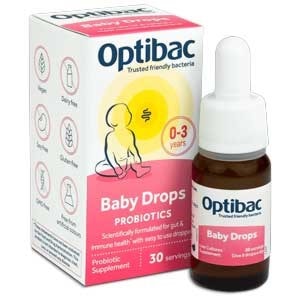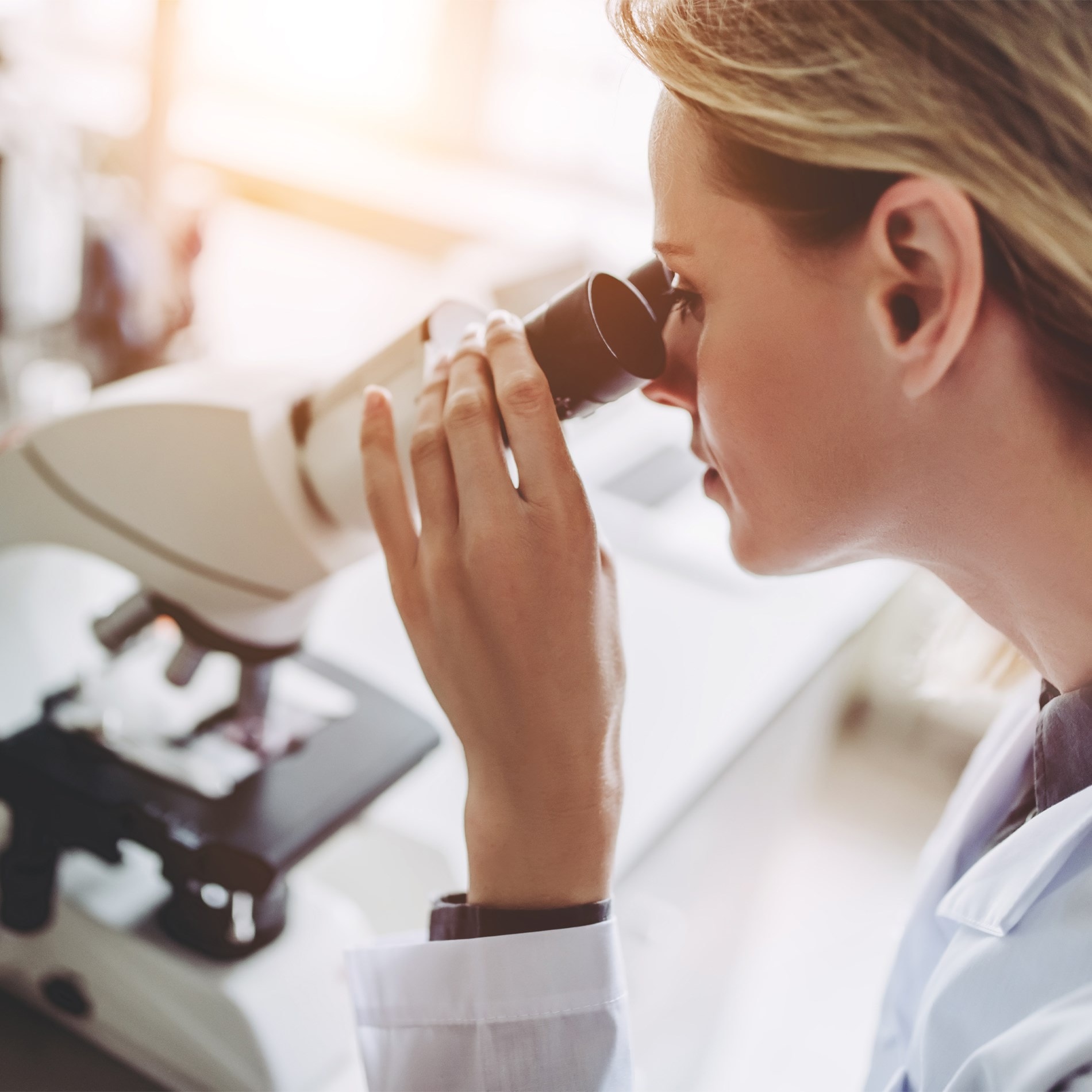Vitamin D and your baby’s microbiome
Vitamin D, the ‘sunshine vitamin’, has gained much popularity over the last few years for its diverse roles in contributing to overall health and wellbeing. Now we can add another perk to this list of attributes, as this nifty vitamin has been found influence the health of your baby’s gut microbiome. Read on to find out more about this fascinating connection.
Vitamin D is well known for its role in skeletal health. It maintains the balance of calcium and phosphorus levels in our bones, keeping them strong and helping to prevent osteoporosis1. It is a versatile nutrient and has various roles around the body, playing a part in cardiovascular health, mental health and immune health, among others2. Interestingly, it has received a lot of attention recently for its role in SARS-CoV-2 infection, the virus implicated in COVID-19. Low vitamin D levels have been associated with increased disease severity in those with SARS-CoV-23 and supplementation has also been suggested to help prevent infection with coronavirus4.
- Vitamin D affects the gut microbiome
- How does vitamin D influence our gut microbiome?
- Sunshine, vitamin D and the gut microbiome
- Vitamin D and probiotics
- Does your child get enough vitamin D?
- The power of vitamin D
Vitamin D affects the gut microbiome
A recent Canadian study of mothers and their infants found an interesting link between vitamin D supplementation and the composition of a baby’s gut microbiome. The first few years of life are pivotal in the development of a healthy gut microbiome that can have a lifelong impact on the individual. To learn more about the importance of your child’s microbiome, read Child Microbiome: Dr Kate’s Guide.
The CHILD (Canadian Healthy Infant Longitudinal Development) cohort study followed 1,157 mother-infant pairs over three years. The researchers assessed the relationship between maternal and infant vitamin D supplementation and the composition of the infant’s gut microbiome 5.
This study found that supplementing the infant’s diet with vitamin D regardless of feeding method was associated with depleted levels of the bacteria, Megamonas. Although there is little research available on this particular genus, Megamonas has been noted to be increased in the microbiomes of male babies born to mothers with prenatal asthma6. The presence of prenatal asthma has been associated with greater severity of viral bronchiolitis in their child’s early life7. Babies born to mothers who supplement their own diet with vitamin D prenatally and postnatally were found to have a lower abundance of the bacteria, Bilophila. Increased level of Bilophila have been found in babies with colic compared with controls8.
This is not the first time that researchers have identified an association between vitamin D and microbiome composition, either9. In a clinical study of healthy adults, vitamin D intake was also associated with alterations to overall gut microbiome composition10. However, although this link has been established across various studies, further studies are still required to ascertain which particular types (strains or genus) of bacteria are affected and what the effects of these bacteria are on the individual.

How does vitamin D influence our gut microbiome?
Warning: this is about to get science-y! Special receptors called VDRs (Vitamin D Receptors) are present on the cells lining the gut wall. When vitamin D binds to these receptors, it stimulates the production of the body’s own natural antimicrobial proteins, which target and inhibit the growth of harmful bacteria in the gut11. It also stimulates the production of proteins which keep the gaps between our gut cells tight and prevents the development of so-called ‘leaky gut’, which can play a role in autoimmune diseases.
Sunshine, vitamin D and the gut microbiome
Vitamin D does not have to come from food sources alone – it isn’t known as the sunshine vitamin for nothing! The action of UVB rays from the sun on our skin stimulates the conversion of the building blocks of vitamin D to vitamin D3. This then passes via the bloodstream to the liver and kidneys, where it is metabolised into a form which the body can use2.
If sunshine stimulates the production of vitamin D, does that mean that it can positively affect our gut microbiome? Yes, it can! A fascinating pilot study demonstrated how exposing the skin of 21 healthy females with low vitamin D levels to sunlight was associated not only with an increase in vitamin D levels, but an increased abundance of beneficial bacteria in their gut microbiomes too12. In other words, sunlight can positively influence the health of our gut microbiome through its effects on vitamin D production in the body.
Vitamin D and probiotics
Probiotics have a similar effect to vitamin D on the gut microbiome composition. As described above, vitamin D can help to inhibit the growth of more harmful bacteria in the gut. Similarly, probiotics can deter the growth of undesirable bacteria by competing with the offenders for space and nutrients, and by producing their own natural anti-microbial substances (known as bacteriocins). We also know that friendly bacteria have been shown to increase absorption of vitamin D in the gut. To learn more about how probiotics can influence vitamin D absorption, read Probiotics aid vitamin D absorption.
Does your child get enough vitamin D?
The UK government recognises the important role of vitamin D. There are published government guidelines best advising how to incorporate vitamin D into our diets and the quantity of vitamin D required per day based on age13. The Recommended Nutrient Intake (RNI) is 10µg or 400 IU per day13. In a UK-based population study, the average daily intake of vitamin D for children between the ages of 1.5 and 10 years was 32% of the RNI. Supplementation with vitamin D for this age group is a potential consideration, especially if they are fussy eaters. Most foods rich in vitamin D probably aren’t your child’s favourite – unless they enjoy lots of oily fish and mushrooms!
The power of vitamin D
This fascinating new research highlights how vitamin D supplementation, both directly to your child and to mum during pregnancy & breastfeeding, can influence your little one’s gut microbiome. Currently, the significance of the genus of bacteria that vitamin D has been shown to reduce is unclear. However, as the studies suggest, vitamin D certainly has far-reaching benefits, in the gut and beyond!
If you are looking for a daily probiotic supplement for your baby, you may like to consider Optibac Baby Drops.
If you found this article interesting, you may also like to read:
References
- Goltzman D. Functions of vitamin D in bone. Histochem Cell Biol. 2018;149(4):305-312. doi:10.1007/s00418-018-1648-y
- Nair R, Maseeh A. Vitamin D: The sunshine vitamin. J Pharmacol Pharmacother. 2012;3(2):118-126. doi:10.4103/0976-500X.95506
- Panagiotou G, Tee SA, Ihsan Y, et al. Low serum 25‐hydroxyvitamin D (25[OH]D) levels in patients hospitalized with COVID‐19 are associated with greater disease severity. Clin Endocrinol (Oxf). 2020;93(4):508-511. doi:10.1111/cen.14276
- Ilie PC, Stefanescu S, Smith L. The role of vitamin D in the prevention of coronavirus disease 2019 infection and mortality. Aging Clin Exp Res. 2020;32(7):1195-1198. doi:10.1007/s40520-020-01570-8
- Drall KM, Field CJ, Haqq AM, et al. Vitamin D supplementation in pregnancy and early infancy in relation to gut microbiota composition and C. difficile colonization: implications for viral respiratory infections. Gut Microbes. 2020;12(1):1799734. doi:10.1080/19490976.2020.1799734
- Koleva PT, Tun HM, Konya T, et al. Sex-specific impact of asthma during pregnancy on infant gut microbiota. Eur Respir J. 2017;50(5). doi:10.1183/13993003.00280-2017
- Alvarez AE, De Lima Marson FA, Bertuzzo CS, Arns CW, Ribeiro JD. Epidemiological and genetic characteristics associated with the severity of acute viral bronchiolitis by respiratory syncytial virus. J Pediatr (Rio J). 2013;89(6):531-543. doi:10.1016/j.jped.2013.02.022
- Eutamène H, Garcia-Rodenas CL, Yvon S, et al. Luminal contents from the gut of colicky infants induce visceral hypersensitivity in mice. Neurogastroenterol Motil. 2017;29(4). doi:10.1111/nmo.12994
- Yamamoto EA, Jørgensen TN. Relationships Between Vitamin D, Gut Microbiome, and Systemic Autoimmunity. Front Immunol. 2020;10(January):1-13. doi:10.3389/fimmu.2019.03141
- Wu GD, Chen J, Hoffmann C, et al. Linking long-term dietary patterns with gut microbial enterotypes. Science (80- ). 2011;334(6052):105-108. doi:10.1126/science.1208344
- Clark A, Mach N. Role of vitamin D in the hygiene hypothesis: The interplay between vitamin D, vitamin D receptors, gut microbiota, and immune response. Front Immunol. 2016;7(DEC):1-12. doi:10.3389/fimmu.2016.00627
- Bosman ES, Albert AY, Lui H, Dutz JP, Vallance BA. Skin exposure to narrow band ultraviolet (Uvb) light modulates the human intestinal microbiome. Front Microbiol. 2019;10(OCT):1-11. doi:10.3389/fmicb.2019.02410
- Prentice A, Cashman K, Key T, et al. Vitamin D and Health 2016. Sci Advis Comm Nutr. 2016:56-116. doi:10.1007/s00198-015-3440-3
Popular Articles
View all Children's Health articles-
Children's Health06 Dec 2023
-
Children's Health25 Oct 2023



